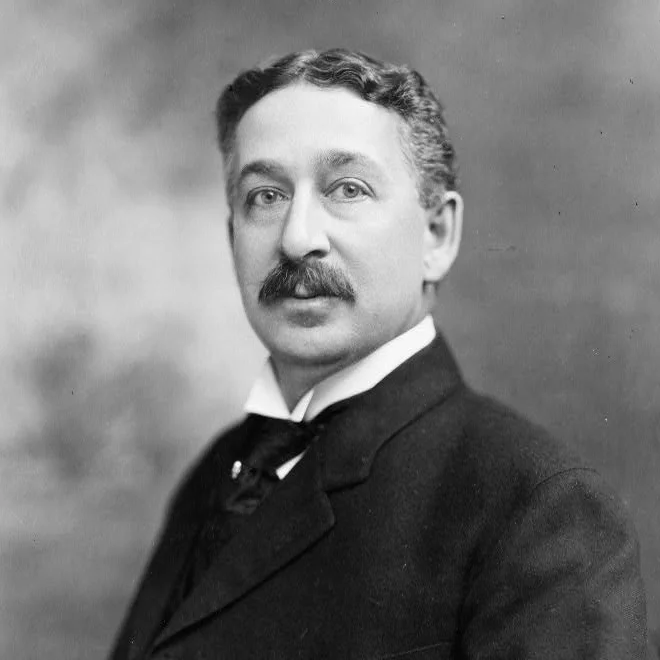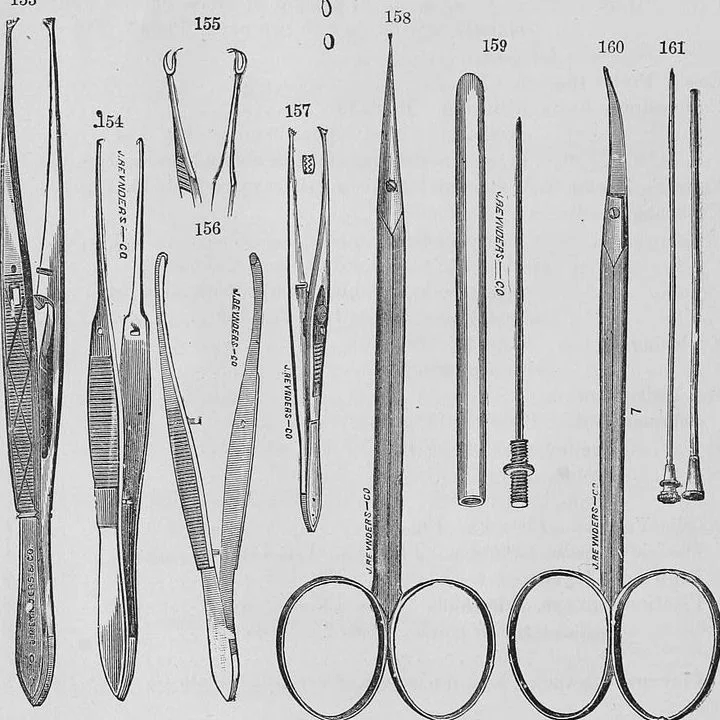King Camp Gillette
January 5, 1855 - King Camp Gillette was born on this day. King grew up in a home filled with the gadgets invented by his father. His mother experimented in the kitchen with innovative recipes.
In 1871, the Great Chicago Fire destroyed his family's business, a hardware store. The Gillettes moved to New York City where his father went to work as a patent agent, and King began a long and miserable stretch as a traveling salesman. In 1887, King's mother became famous with the publication of her now-legendary White House Cookbook. Bitter with his own lack of success, King tried his hand at writing and penned an anti-capitalist novel, The Human Drift, in which he proposed a socialist utopia, free from the evils of competition.
The centerpiece of King's new world was a three-level Metropolis built atop Niagara Falls. Self-sustained by the endless hydro-electric power, this would be the ONLY city needed on the North American continent. The rest of the country would return to its natural and wild state. The book succeeded in achieving some notoriety, but King's vision for the city of the future was never seriously entertained.
At age 40, King was back to being a salesman. His boss, William Painter, was the inventor of the cork-lined bottle cap, and he recommended that King try to invent something that people could use once, then throw away. A few days later, King had his eureka moment while shaving before work. It bothered him that his straight razor had gone dull and was so worn out that it wouldn't sharpen. Besides being hard to maintain, straight razors were notoriously dangerous. As a traveling salesman, King was familiar with tales of men accidentally slashing their own throats while shaving on bumpy trains.
He had his idea!
King realized that what the world needed was a razor that was sharp enough to give you a good shave, but not big enough to slice open your jugular. Better even, these razors would be disposable, so when they went dull you'd simply replace it with a new one.
It took five years for King to turn his concept into reality. He teamed up with fellow inventor William Emery Nickerson and together they started the American Safety Razor Company. They opened for business in 1901.
In the beginning, the cost of making the razors was greater than the selling price, but the plan was always to make money in the long-run as customers returned time and again to purchase replacement blades. King even came up with the novel idea of giving away the razors for free, knowing that if someone tried them, they'd soon be coming back for more.
In his first year, he sold 51 razors and 168 blades. In his second year he sold 90,884 razors and 123,648 blades! In 1904 he patented the double-edged razor, and he renamed his company the Gillette Safety Razor Company. By 1915 blade sales exceeded 70 million units.
King was now rich beyond his wildest dreams, and he used his money to travel all around the world. He was recognized almost everywhere he went, thanks to his picture being on every box of razors he sold.
But the good times wouldn't last forever. King lost most of his fortune in the Great Depression. He also spent lavishly on huge real estate projects. King became a bit of a nutter in his old age. In Palm Springs he was often seen wandering around the Desert Inn in a tattered old robe. He was almost broke when he died in 1932.
Over the decades, his company continued to thrive and expand. The Gillette Company would grow to include brands like Braun, Duracell and Oral-B. In 2005 it was sold to Procter & Gamble for 57 billion dollars.





